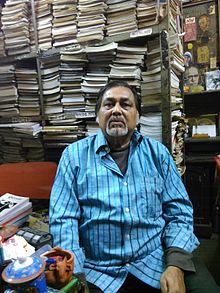
SoumitraChatterjee was an Indian film actor, play-director, playwright, writer, thespian and poet. He is regarded as one of the greatest and most influential actors in the history of Indian cinema. He is best known for his collaborations with director Satyajit Ray, with whom he worked in fourteen films.
The Hungry Generation was a literary movement in the Bengali language launched by what is known today as the Hungryalist quartet, i.e. Shakti Chattopadhyay, Malay Roy Choudhury, Samir Roychoudhury and Debi Roy, during the 1960s in Kolkata, India. Due to their involvement in this avant garde cultural movement, the leaders lost their jobs and were jailed by the incumbent government. They challenged contemporary ideas about literature and contributed significantly to the evolution of the language and idiom used by contemporaneous artists to express their feelings in literature and painting.

Malay Roy Choudhury was an Indian Bengali poet, playwright, short story writer, essayist and novelist who founded the Hungryalist movement in the 1960s.

Sukumar Ray is a 1987 Bengali short documentary film made by Satyajit Ray on his father, Sukumar Ray. It was released during the birth centenary year of Sukumar Ray, who was born on 30 October 1887. The thirty minutes documentary features the life and some of the works by Sukumar Ray in the form of paintings, photographs and readings.

The Pashchimbanga Bangla Akademi is the official regulatory body of the Bengali language in West Bengal, India. It was founded on 20 May 1986 in Kolkata to act as the official authority of the language and is entrusted with the responsibility of reforming Bengali spelling and grammar, compiling dictionaries, encyclopedias and terminologies and promoting Bengali language and culture in West Bengal. Though the Akademi has no enforcement power over their rules and regulations, yet they are widely accepted by the Governments of West Bengal and Tripura as well as a considerable number of private publishing houses and institutions like the Oxford University Press and the Ramakrishna Mission.
Syed Ali Ahsan was a Bangladeshi poet, writer and university academic. He was awarded Ekushey Padak (1982) and Independence Day Award (1987) by the Government of Bangladesh. In 1987, he was selected as the National Professor of Bangladesh. He was credited as the official English translator of the National Anthem of Bangladesh.

Buddhadeva Bose, also spelt Buddhadeb Bosu, was an Indian Bengali writer of the 20th century. Frequently referred to as a poet, he was a versatile writer who wrote novels, short stories, plays and essays in addition to poetry. He was an influential critic and editor of his time. He is recognised as one of the five poets who moved to introduce modernity into Bengali poetry. It is said that since Rabindranath Tagore, there has not been a more versatile talent in Bengali literature.
The little magazine movement originated in the 1950s and 1960s in many Indian languages like Bengali, Tamil, Marathi, Hindi, Malayalam and Gujarati, in the early part of the 20th century.
Yashodhara Ray Chaudhuri is a poet residing in Kolkata, West Bengal, India. She produced collections of Bengali poetry. She was awarded the Krittibas Puraskar in 1998 by the Krittibas Patrika.

Arun Mitra was an Indian poet of Bengali, who also translated French literature.

Bishnu Dey was a leading Bengali poet, writer, essayist, academician, art appreciator, and connoisseur in the era of modernism and post-modernism.
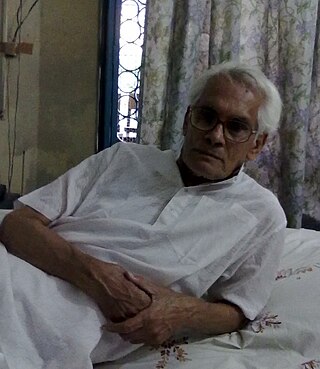
Samir Roychowdhury, one of the founding fathers of the Hungry Generation, was born at Panihati, West Bengal, in a family of artists, sculptors, photographers, and musicians. His grandfather Lakshminarayan, doyen of the Sabarna Roy Choudhury clan of Uttarpara, had learned drawing and bromide-paper photography from John Lockwood Kipling, father of Rudyard Kipling, who was Curator at the Lahore Museum, and thereafter established the first mobile photography-cum-painting company in India in the mid-1880s. The company was later taken over by Samir's father Ranjit (1909–1991). Samir's mother Amita (1916–1982) was from a progressive family of 19th-century Bengal renaissance.

Rabindra Guha is a Bengali poet of the Hungry generation movement in literature who subsequently started the Neem Sahitya Andolan with Mrinal Banik and Biman Chattopadhyay from the steel factory city of Durgapur in West Bengal. He has written several collections of poetry, short stories and novels. He is known mainly for the language of the Bengali diaspora which he adopted and developed for his narratives. He lived in Kolkata until the Hungry generation movement died down at the end of the 1960s, and shifted thereafter to Durgapur. At the end of 1970s, he shifted his base to New Delhi where he invented his narrative language of the Bengali diaspora, i.e. of people who live outside West Bengal. Rabindra Guha is a diasporic post-modern writer with a prolific body of work in relation to inner as well as outer diaspora. He has been a creator of language which is a fantastic combination of national and local dialect. His work had been recently accoladed in Jessore University.
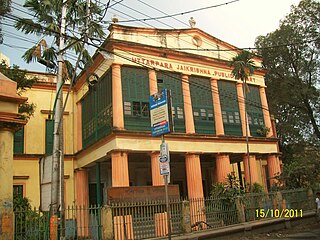
Uttarpara Jaykrishna Public Library is a district library in Uttarpara, West Bengal, India, and is the first of its kind in Asia. Located in Uttarpara, a small town on the banks of the Hoogly river, this library was established by Babu Jaykrishna Mukherjee and opened to the public in 1859. At present, the library has been declared a Group ‘A’ Library by the West Bengal State Government. Efforts are being made to have it declared an Institution of National Importance.

Sabujpatra was a liberal and pro-Tagore Bengali magazine. It was named Sabujpatra as its cover page was illustrated by a green palmleaf drawn by Nandalal Bose. It was edited by Pramatha Chaudhuri and first published on 25th Baishakh 1321 BS. He was mentored and inspired by Rabindranath Tagore to publish such a journal. The magazine shunned advertisements and pictures to uphold about the ideals and standards the editor believed in. In the first phase it was being published up to 1329 BS (1922). Its second phase started in 1332 BS. The magazine finally folded in 1334 BS (1927).
The Kobita Club is a literary group consisting of poetry lovers, specifically Bengali. The club was founded in early December 2011 by Surojit Chatterjee, music director and lead vocalist of Bangla Band, Surojit O Bondhura & Bhoomi. The Kobita Club was later developed as a website, where poets and poetry lovers all over the world, share creative thoughts and expressions in the form of poetry. The club is registered under the West Bengal Society Registration Act 1961.
Anil Acharya is an Indian Bengali scholar, essayist, short story writer and poet. In 1966, he founded the Bengali literary quarterly and little magazine Anustup.
Utpal Kumar Basu was a Bengali poet and story teller.
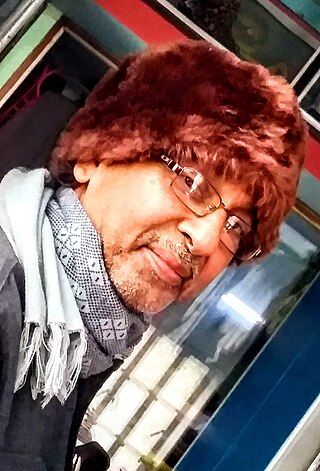
Arup Chandra, born in 1951 in Murshidabad district in the state of West Bengal, is a writer, poet, essayist, art critic, and an educator. He is the writer of more than fourteen books, and has edited twelve others. Two of his books are translated into English and published. His research speciality is the history, poetry, art, culture and literature of Murshidabad District.
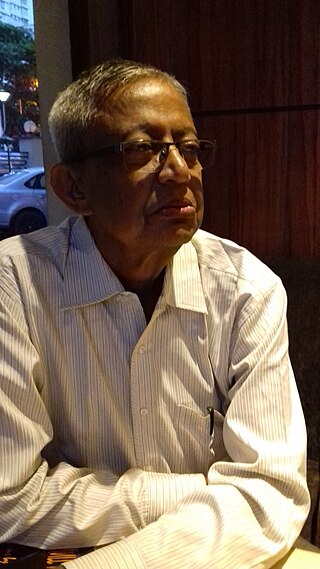
Manohar Mouli Biswas is the pseudonymous appellation adopted by Manohar Biswas, a distinguished and arguably the preeminent bilingual poet, essayist, and luminary figure in Dalit Literature emanating from the Bengal region.



